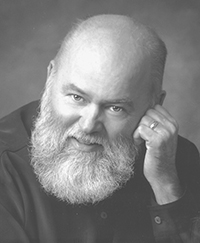 Jeffrey Brantley, MD, is a consulting associate in the Duke Department of Psychiatry and the founder and director of the Mindfulness-Based Stress Reduction Program at Duke Universitys Center for Integrative Medicine. He has represented the Duke MBSR program in numerous radio, television, and print interviews. He is the best-selling author of Calming Your Anxious Mind and coauthor of Five Good Minutes and Five Good Minutes in the Evening.
Jeffrey Brantley, MD, is a consulting associate in the Duke Department of Psychiatry and the founder and director of the Mindfulness-Based Stress Reduction Program at Duke Universitys Center for Integrative Medicine. He has represented the Duke MBSR program in numerous radio, television, and print interviews. He is the best-selling author of Calming Your Anxious Mind and coauthor of Five Good Minutes and Five Good Minutes in the Evening.
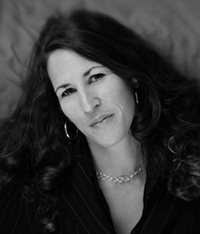 Wendy Millstine, NC, is a freelance writer and certified holistic nutrition consultant who specializes in diet and stress reduction. She is coauthor of Five Good Minutes and Five Good Minutes in the Evening.
Wendy Millstine, NC, is a freelance writer and certified holistic nutrition consultant who specializes in diet and stress reduction. She is coauthor of Five Good Minutes and Five Good Minutes in the Evening.
Publishers Note
This publication is designed to provide accurate and authoritative information in regard to the subject matter covered. It is sold with the understanding that the publisher is not engaged in rendering psychological, financial, legal, or other professional services. If expert assistance or counseling is needed, the services of a competent professional should be sought.
Distributed in Canada by Raincoast Books
Copyright 2009 by Jeffrey Brantley and Wendy Millstine
New Harbinger Publications, Inc.
5674 Shattuck Avenue
Oakland, CA 94609
www.newharbinger.com
Cover design by Amy Shoup; text design by Amy Shoup and Michele Waters-Kermes; acquired by Tesilya Hanauer; edited by Kayla Sussell
All Rights Reserved.
Fifth in the Five Good Minutes series
Five Good Minutes is a trademark of New Harbinger Publications, Inc.
Library of Congress Cataloging-in-Publication Data
Epub ISBN: 9781608824564
The Library of Congress has cataloged the print edition as:
Brantley, Jeffrey.
Five good minutes in your body : 100 mindful practices to help you accept yourself and feel at home in your body / Jeffrey Brantley, and Wendy Millstine.
p. cm.
Includes bibliographical references.
ISBN-13: 978-1-57224-596-9 (pbk. : alk. paper)
ISBN-10: 1-57224-596-4 (pbk. : alk. paper)
1. Mind and body. 2. Body, Human. I. Millstine, Wendy, 1966- II. Title.
BF151.B73 2009
158.12--dc22
2008039791
10 09 08

This book is dedicated to anyone who ever struggled orsuffered in their body. May you rediscover your wholenessand live with ease and happiness.
Jeffrey Brantley
For Mother Earth, from whose infinite wisdom and bountifulbody all life issues forth. May I always be humble and gratefulfor her many gifts and remain worthy of her sacred guidance.
Wendy Millstine
introduction
Do you live in your body or with your body?
Both, of course (and more).
Imagine living more happily and completely in and with your bodynot only your physical bodybut inside your wholeness as a human being.
What if your relationships with yourself, with others, and with the world could deepen and become enriched as you learned and practiced inhabiting your own body with greater awareness and more compassion?
Finding greater happiness and fulfillment in your life might begin with this interesting question: What is your current relationship with your body?
Are you more often in touch or out of touch with it?
Are your thoughts about your body dominated by judgments and criticisms? Or by interest and curiosity?
Are your attitudes toward your body driven by fear or dislike? Or by gratitude and compassion?
Its easy to become confused about your body. In these times, and especially in this culture, practically everyone is bombarded by complicated and often conflicting messages about what it means to be an embodied and whole human being.
Visual images of idealized bodies that are alternately seductive, repulsive, exciting, frightening, and even shocking surround us.
Advertising messages, often in the guise of promoting health and well-being, leave the (intentional) impression that whatever your physical (or emotional, psychological, even spiritual) condition might beit is not good enoughand requires something else (most likely the advertisers product)!
And many, if not most, people have very little accurate and current information regarding recent scientific discoveries about the amazing connections between the mind and body, and the implications of these connections for improved health and happiness.
One profound and disturbing consequence of all these conflicting messages is that you are often left feeling both fragmented and compartmentalized regarding your basic experience of being human, moment to moment and day to day.
Yet your path to greater health and a happier embodimentto being more consciously present in your body moment by momentcould be closer and more accessible than you ever imagined.
Finding that path depends, in part, on the recognition that humans are whole beings inhabiting bodies that change, which are built of collections of smaller bodies (atoms, molecules, cells, tissues, organs, and so on) and which simultaneously belong to collections of larger bodies (pairs, families, groups, species, ultimately, all living things). Your mind and body are deeply interconnected with each other (indeed not even as separate as those terms imply), and with the flow of experience through the larger (and smaller) bodies around (and within) you.
So finding your path to better health and a happier embodiment depends on being present. Experiencing wholeness grows from cultivating your awareness of the amazing interplay between your bodys sensations and functions and the flow of your thoughts, emotions, and attention, literally breath by breath.
Mindfulness
What if all it takes for you to find greater happiness and better health in every aspect of your life, as you go about your daily routines in your own body, depends simply on paying attention on purpose, in a kind and nonjudgmental way, right now in the present moment?
Mindfulness is the name for the awareness that arises from paying attention on purpose, in a gentle and welcoming way, moment by moment. Mindfulness is a basic human capacity that can be strengthened with practice. Being mindful simply means paying attention on purpose, nonjudgmentally, with an accepting, friendly spirit.
Mindfulness can be applied to your body, to the smaller bodies it includes, and to the larger bodies it belongs to.
And, very importantly, mindfulness (which includes the qualities of kindness and compassion) can be applied to your body when it is ill or in pain, as well as when it is healthy and vigorous.
In the practices in this book, you are invited to discover how gentle nonjudging attention centered in the present moment and focused on your body, in all of its expressions, can set the stage for a radically differentand more rewardingexperience of embodiment, and of life itself.
Presence, Intention, Wholeheartedness
In our previous books in the Five Good Minutes series, we offered easy, accessible, mindfulness-based practices that can be done in just five minutes of clock time, and yet they hold the power to profoundly transform your life.
The power in these practices is that they invite you to step back from unconscious and automatic habits of mind and body dominated by rush, worry, and the momentum of busyness, inattention, and distractions.

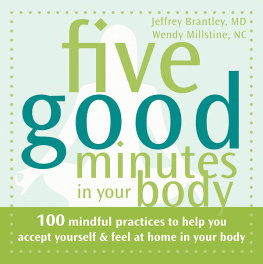
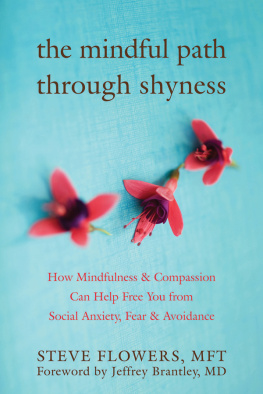
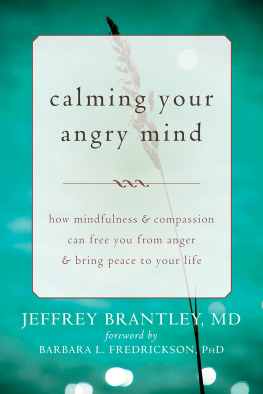
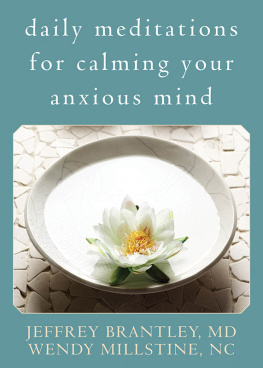
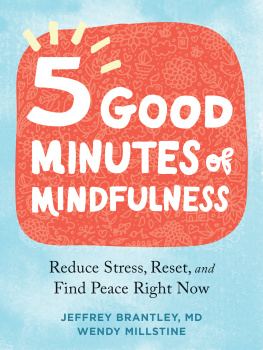
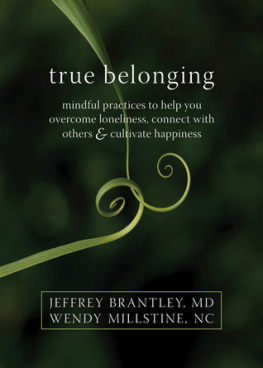

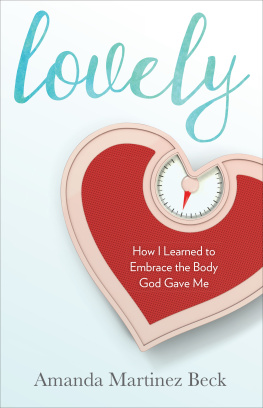
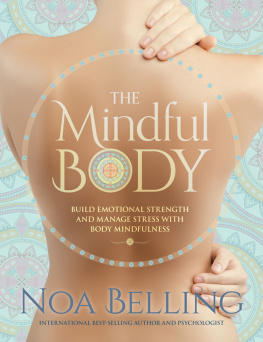
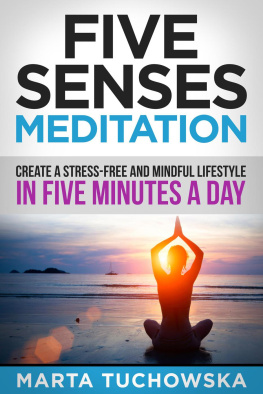
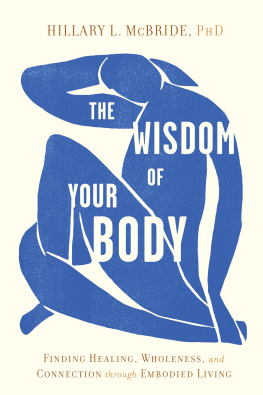
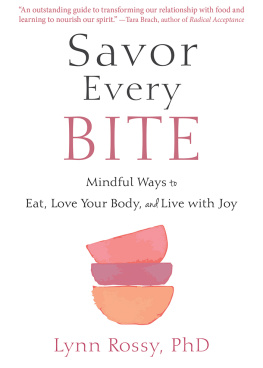
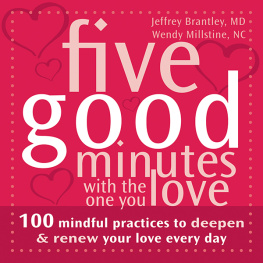
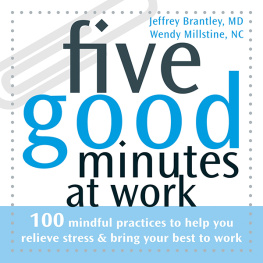
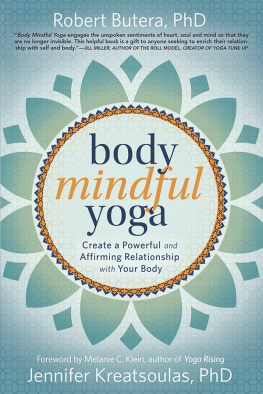
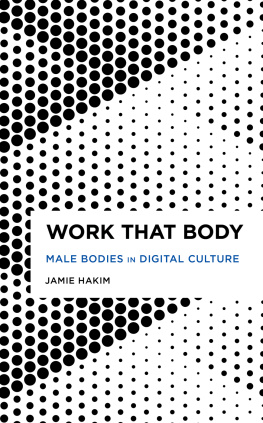
 Jeffrey Brantley, MD, is a consulting associate in the Duke Department of Psychiatry and the founder and director of the Mindfulness-Based Stress Reduction Program at Duke Universitys Center for Integrative Medicine. He has represented the Duke MBSR program in numerous radio, television, and print interviews. He is the best-selling author of Calming Your Anxious Mind and coauthor of Five Good Minutes and Five Good Minutes in the Evening.
Jeffrey Brantley, MD, is a consulting associate in the Duke Department of Psychiatry and the founder and director of the Mindfulness-Based Stress Reduction Program at Duke Universitys Center for Integrative Medicine. He has represented the Duke MBSR program in numerous radio, television, and print interviews. He is the best-selling author of Calming Your Anxious Mind and coauthor of Five Good Minutes and Five Good Minutes in the Evening. Wendy Millstine, NC, is a freelance writer and certified holistic nutrition consultant who specializes in diet and stress reduction. She is coauthor of Five Good Minutes and Five Good Minutes in the Evening.
Wendy Millstine, NC, is a freelance writer and certified holistic nutrition consultant who specializes in diet and stress reduction. She is coauthor of Five Good Minutes and Five Good Minutes in the Evening.